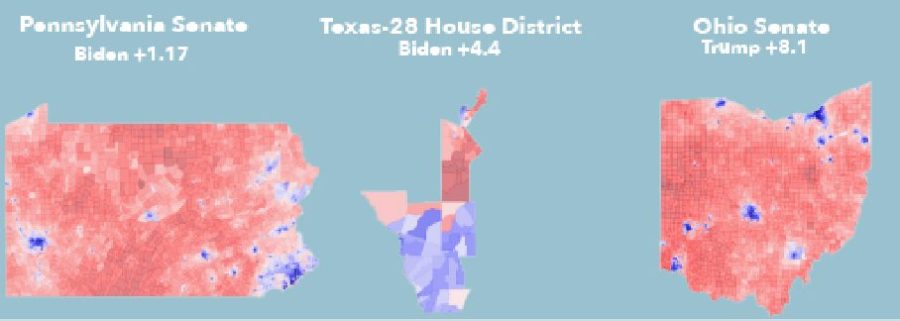The Midterms Dawn
With historically low polling averages, intra-party fights are growing.
June 9, 2022
T
he midterms aren’t looking good for Democrats. “A special thanks to the 42% of you who actually applauded,” President Biden said, joking about his historically low approval ratings at April’s White House Correspondents’ Association Dinner.
Morbid midterm jokes have become a fixture of Democratic politics over the past several months. Biden’s approval ratings have shrunk, and Democrats have been hit with a succession of redistricting losses.
At the same time, Democratic party primaries are deciding whether to steer the party towards progressive policies, or to advocate for candidates they think can win.
The Republican party is amid competitive brawls for safely-Republican Senate seats by different factions, all competing for Trump voters and the former President’s endorsement.
In Pennsylvania, Republican Senator Pat Toomey is retiring, opening up a free Senate seat in a state closely won by Biden in 2020.
In the Democratic primary, liberal Lieutenant Governor John Fetterman won against moderate Congressman Conor Lamb. Fetterman’s fundraising advantage puts him in a good position, but faces a difficult road to victory.
On the Republican side, two men are in the midst of a post-election brawl. Breaking out of a large crowd of candidates, Dr. Mehmet Oz, a former TV personality, and David McCormick, a hedge fund manager, finished both around 31% of the vote.
However, the margin is thin, and the few thousand uncounted voted could tip the balance from Oz to McCormick. Experts are preparing for expensive litigation from each candidate, even after the mandatory recount. The saga could potentially last till June.
In Texas’ 28th congressional district, a Democratic primary is heating up as warring factions of the party compete for the nomination. The formerly deep-blue district has trended heavily to the right.
Nevertheless, Biden still safely won the district, and progressives see the seat as a pickup opportunity from one of the most conservative Democrats in the house.
Incumbent Henry Cuellar is defending his record against progressive immigration attorney Jessica Cisneros, who narrowly lost an earlier challenge in 2020.
Cisneros is supported by national progressive groups like Planned Parenthood Action Fund and Justice Democrats due to Cuellar’s pro-life stances and moderate economic policies.
Super PACs are spending big in defense of Cuellar. After no candidate got over 50%, Cuellar and Cisneros advanced to a runoff.
In Ohio, a GOP Senate primary showed more fractures within the party.
An April poll showed former author and businessman JD Vance leading the field narrowly, with former state Treasurer Josh Mandel and anti-Trump State Senator Matt Dolan trailing.
Trump announced his endorsement of Vance in late April. The race became rough as candidates rushed to emphasize their pro-Trump credentials, and Super PACs invested millions of dollars in attack ads.
On May 3, Vance narrowly won the primary, emphasizing the enduring power of the Trump endorsement in Republican politics.


































